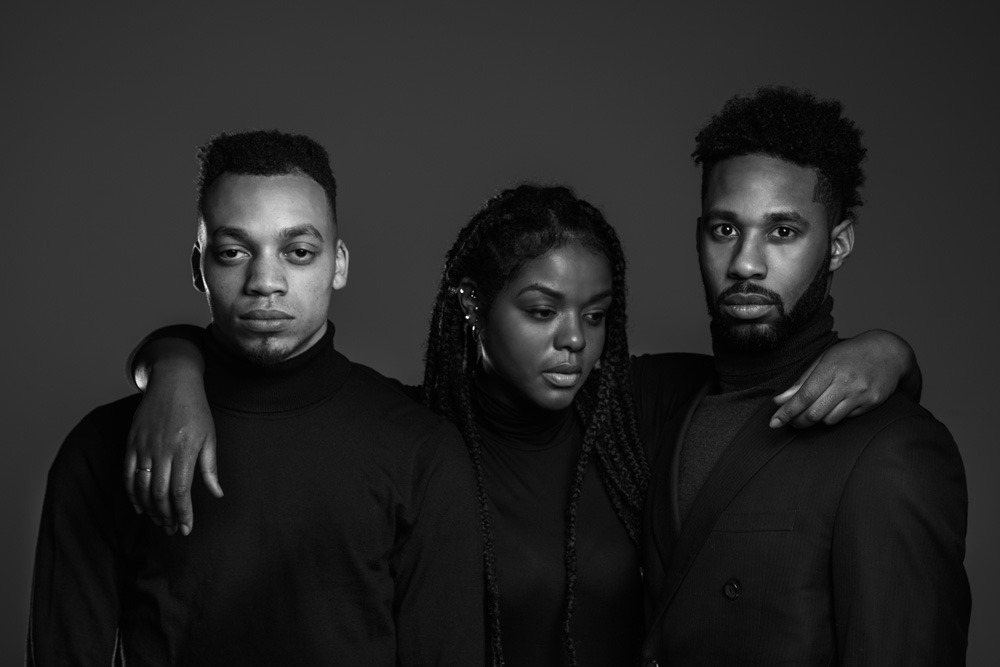
This article is one in series of personal essays that NPQ, in partnership with Tony Pickett of the Grounded Solutions Network and Marcus Littles of Frontline Solutions, is publishing in the coming weeks. (You can read the preceding one here.) Titled Black Male Leadership: Nonprofit Voices, Truth, and Power, the objective of this series is to lift up Black male voices to highlight the challenges Black male leaders in the nonprofit sector face—as does the sector as a whole—amid ongoing anti-Black violence and the disparate racial impact of COVID-19.
This year, in all of its complexities, uncertainties, and angst, has provided for me a space for self-interrogation. These months have been undoubtedly heavy, but they have also offered a freedom that accompanies reckoning with hard truths and allowing lessons to sit and settle. As I continue to wrestle, wonder, and reflect inwardly, I am forced to come to terms with some critical aspects of my identities, leadership qualities, and shortcomings.
Somewhere outside of my numbness, I can recall how I felt as I read the stories, and even watched videos, that captured the murders of Ahmaud Arbery, Breonna Taylor, and George Floyd. I don’t have precise words to describe these feelings, but I do have a clear recollection of my heart pounding profusely each time. I’m not always emotionally astute enough to be able to tell whether my deep hurt is due to trepidation and fear for myself and my family; heartache for the families and communities of these victims of state violence; despair, hopelessness, and a lack of faith in a society that dehumanizes Black folks without remorse; or some combination of all of these things.
But through my processing of this mixed bag of feelings, quarantine has carved the space for me to explicitly connect how I am feeling to how I lead. If leadership is indeed more than a position, and a part of my identity, then it cannot be bifurcated from other aspects of my identities. And so, I find myself deeply reflective of who I am and who I have been as a Black and male identified leader. Looking back at my leadership style, behaviors, and norms, one excruciating reality is that the system of white supremacy has long been targeting me (and my contemporaries) as a core constituency. And maybe I should have known this, but I didn’t realize that white supremacy “swipes right” every time it sees my profile. I didn’t know I was his type.
White supremacy offers alluring and veiled invitations to Black men to buy what it is selling us. Black male-identified organizational leaders are perfect targets for white supremacy’s recruitment. And as I ruminate over my own growth as a leader—as a Black male leader—I reluctantly realize that the characteristics of leadership that I have unconsciously gravitated toward at times have aligned with the trappings of white supremacy.
White supremacy is a system that is deeply entrenched within all US systems. I would also contend that it is a highly contagious disease. So why do Black male leaders make such amenable hosts for the spread of the centuries-old global pandemic of white supremacy? Over the last few months, I’ve thought a lot about my more than twelve years leading an organization in the nonprofit sector as a Black man. Specifically, I have been reflecting on the trappings of white supremacy and their impact on my leadership. Two really important insights have come to light.
1. White supremacy and patriarchy are conjoined twins, and so white supremacy affirms Black male leaders’ displays of toxic and hyper masculinity.
I have often wondered about the origins of some of the characteristics of my leadership that I’m least proud of. Where did I “learn” that as a leader it is acceptable to interrupt women, particularly Black women? Why am I so conditioned to reject my own vulnerability as a leader? Who told me that being heard is more important than the will and skill of deep listening?
These behaviors have been affirmed, and even rewarded, in a sector with disproportionately low representation of Black men and Black women in executive leadership. Many white-led (and thus white-centered) organizations actively perpetuate a brand of leadership that is inherently and explicitly anchored in patriarchy. I don’t recall when and how I accepted this brand of leadership as normal, because white supremacy has been a stealthy, pervasive and effective teacher.
Why are Black men especially susceptible? White supremacy proselytizes leadership that values power more than people. And so, the Black male leader is presented with choices: to acknowledge weakness and admit he doesn’t know, or to perform. He can acknowledge his male privilege and use it to ensure that the voices of Black women, LGBTQI+, and other historically marginalized folks are centered, or dismiss the reality of his privilege and thus interrupt and mute their voices. White supremacy tries to convince Black men that patriarchy is a tool that can become them, even as acceding to its tenets leads to division among Black men and women and reinforces the system of white supremacy as a whole. And when Black male leaders like myself ingest this lie, we become ideal carriers for the rapid spread of the impacts of white supremacy.
Sign up for our free newsletters
Subscribe to NPQ's newsletters to have our top stories delivered directly to your inbox.
By signing up, you agree to our privacy policy and terms of use, and to receive messages from NPQ and our partners.
2. Ego-centered leadership is both caused by, and an effect of the system of white supremacy.
The Building Movement Project’s Race To Lead and Race to Lead Revisited reports share clear and compelling evidence of the structural barriers that people of color face in attaining leadership positions in the nonprofit sector compared to their white counterparts. Research indicates that the road to obtaining these positions is longer or less direct for people of color.
The majority of nonprofit leaders are white, making white leadership in the sector the “rule,” and Black leadership—including Black male leadership—the exception. And the thing about being the exception is that it is a short road from making exceptional gains to self-identifying as exceptional. I took great pride in my position as an executive in the nonprofit sector for more than twelve years. And I can remember many instances when my belief in my own exceptionalism led me to center ego in my approach to leadership. I was obsessed with my vision, my ideas, and my preferences.
The ego-centered Black male leader is the creation of a system that makes him one of only a few…an exception. The white supremacy origins and predominant culture in the nonprofit sector is the cause of the gross underrepresentation of Black males in leadership positions. The impact of white supremacy, in turn, is a sector (and society) where Black male leaders all too often choose to exercise leadership that centers our egos, rather than empathy and equity.
The year 2020 has challenged me to acknowledge and better understand the depth and breadth of white supremacy’s impact on me and my leadership. Looking back at my leadership experiences and trajectory, I now see that white supremacy places a bullseye on my back. He recruited me, without me even knowing I was a recruit. And so I believed him when he whispered in my ear that my role as a leader was to take space, not make space. I consistently assessed my impact by whether my voice was heard and my point relayed, rather than by how effectively I made and held space for the collective to offer their insights and ideas.
White supremacy knew what I liked, and so he affirmed my ego, to the point that my self-awareness was numbed and aloof to how much I had normalized talking over and around and interrupting Black women. The silver tongue of white supremacy convinced me time and time again that admitting my feelings of inadequacy, imposter syndrome, fear, and ineptitude were my kryptonite, when in fact my acknowledgement and awareness of my vulnerability could unlock my greatest superpowers.
There is no such thing as asymptomatic for any of us who have come into contact with white supremacy…and we all come into contact with it every day. As I accept the reality that my condition cannot always be measured by my ability to recognize symptoms, I have put protocols in place to help ensure that the pandemic of white supremacy does not any further dim my power and potential as a leader.
- Take my temperature every single day: My ability to lead well is dependent upon a disciplined practice to each day prepare to lead with principled intention, and practice leadership anchored by equity and justice. White supremacy has a way of perpetuating our busyness and quelling our need to slow down and take the temperature of our preparedness to realign with our North Star and to reject white supremacy’s bait.
- Trust, listen to, and be in community with Black women: Proximity to a multiplicity of diverse folks who identify as Black women provides intersectional views into the intensity and harm that white supremacy causes.
- Start or join a recovery group: My colleague, Dr. Micah Gilmer often asserts that, “We are all in recovery from white supremacy and patriarchy.” Recovery is done best in community. My progress in shedding the clothes of white supremacy is due in significant part to a support group composed of other Black male leaders of organizations that are in a process of rejecting the system that has cleverly recruited us.
I find so much power and healing in these reflections and lessons. I hear Assata Shakur remind us, “The more you understand what you’re dealing with, the stronger you get.” The most powerful tools to combat the pandemic of white supremacy is to develop the sensibilities to see it and then create alternative systems to counter it. The mark of a great leader is in his/her/their ability and willingness to honestly look inside themselves, learn, and grow. I hear Frederick Douglass encouraging us to remember that “If there is no struggle, there is no progress.” And once again, Shakur inspires us to believe that, “We have nothing to lose but our chains.”
Here’s to struggle. Here’s to progress. Here’s to liberatory leadership. We have nothing to lose but our chains.










